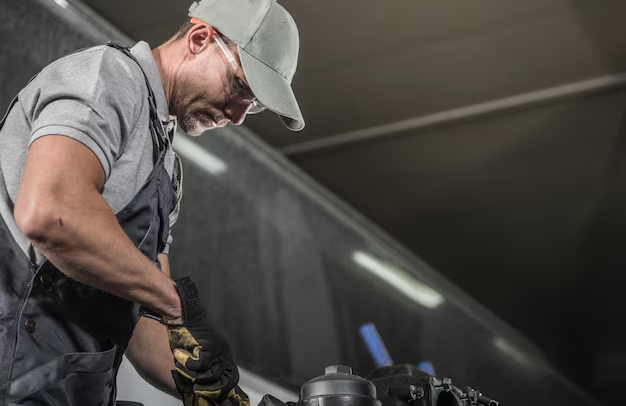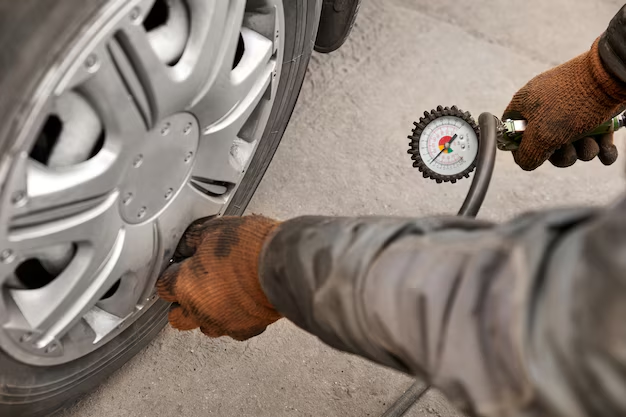When it comes to keeping your car running reliably, professional services from a trusted shop are essential. But what you do between visits to your mechanic can make a big difference in your vehicle’s health and longevity. Simple steps in daily care, basic checks, and routine habits can save you from costly repairs, extend the life of your car, and keep you safe on the road.
C&D Automotive in Fort Worth has been serving drivers for over 40 years, offering everything from diagnostics and safety inspections to wheel alignments and suspension repairs. While our team is here to handle the big jobs and ensure your vehicle is road-ready, you can take proactive steps to maintain your car between visits.
Let’s explore some practical car maintenance tips and DIY vehicle care strategies you can start today.

Check Your Oil Regularly
Oil is your engine’s lifeblood, and checking it is one of the easiest things you can do at home. Even if you follow your manufacturer’s recommended oil change schedule, leaks or excessive consumption can lead to low oil levels between services.
To check your oil:
- Park on level ground and let the engine cool.
- Remove the dipstick, wipe it clean, reinsert it, and pull it out again.
- Ensure the oil level is between the minimum and maximum markers.
If the oil looks dirty or gritty, it may be time for a change, even if it’s not yet due. Keeping a close eye on oil levels helps prevent engine wear and costly repairs.
Keep Tires in Top Shape
Your tires are the only part of your car that make contact with the road, so their condition has a direct impact on safety, performance, and fuel efficiency.
Here’s how to stay on top of tire care:
- Check tire pressure monthly. Use a reliable gauge and inflate to the manufacturer’s recommended levels, which you’ll find on a sticker inside your driver’s door or in the owner’s manual. Proper pressure improves gas mileage and helps tires last longer.
- Inspect tread depth. Use the penny test: insert a penny head-first into the tread. If you can see all of Lincoln’s head, it’s time for new tires.
- Look for damage. Keep an eye out for bulges, cracks, or uneven wear that could signal alignment or suspension issues.
Rotating your tires every 5,000 to 7,000 miles is also key to ensuring even wear. While tire rotations are best left to professionals, regular inspection at home helps you catch problems early.
Test Your Lights and Signals
It’s easy to overlook your headlights, brake lights, and turn signals until they stop working, but functioning lights are critical for your safety and for avoiding traffic tickets.
Every few weeks, turn on your headlights, high beams, brake lights, and signals. Have someone stand outside the car to check that all bulbs are functioning, or use reflective surfaces like garage doors and store windows to confirm. Replacing a bulb is often simple and inexpensive, but letting it go unnoticed can put you and others at risk.
Maintain Proper Fluid Levels
Besides oil, your car relies on several other fluids to function properly. These include coolant, transmission fluid, brake fluid, and windshield washer fluid.
Here’s a quick guide to routine fluid checks:
- Coolant: Helps regulate engine temperature. Low coolant can lead to overheating. Check the reservoir and top off as needed, but never open the cap when the engine is hot.
- Transmission fluid: Usually requires a dipstick check, similar to oil. If it looks dark or burnt, have it inspected.
- Brake fluid: Low levels could indicate a leak or worn brake pads, both of which require immediate attention.
- Windshield washer fluid: Essential for clear visibility, especially during Texas dust storms or rainy days.
These quick checks can be done in your driveway and help prevent major issues.
Protect Your Battery
Few things are more frustrating than a dead battery when you need to get somewhere. While batteries eventually wear out, proper care can extend their life.
- Inspect for corrosion. Check the terminals regularly and clean them with a mixture of baking soda and water if needed.
- Secure the battery. Make sure it is mounted tightly to avoid vibrations that shorten its lifespan.
- Limit short trips. Repeatedly driving short distances can prevent the battery from fully charging. Occasionally, take a longer drive to keep it healthy.
If you notice slow engine cranking or dim headlights, it may be time for a professional battery test.
Wash and Wax Regularly
Car maintenance isn’t only about what’s under the hood. Dirt, road salt, and environmental contaminants can wear away at your vehicle’s paint and even cause rust over time.
Washing your car every couple of weeks helps protect its exterior. Adding a coat of wax every few months provides an extra layer of protection, keeping your car looking great and preserving resale value. Don’t forget the undercarriage, especially after driving on salted winter roads.
Listen and Pay Attention
Your car often tells you when something is wrong. New noises, vibrations, or changes in performance should never be ignored. For example:
- Squealing brakes could mean worn pads.
- Knocking or pinging sounds might point to engine issues.
- A pull to one side while driving could signal alignment or suspension problems.
Catching these warning signs early is one of the most valuable forms of DIY vehicle care. If something feels off, schedule a diagnostic check before the problem escalates.
Stick to a Maintenance Schedule
Even with regular at-home care, professional maintenance is essential. Simple habits like oil checks and tire inspections go a long way, but nothing replaces the precision of professional diagnostics and services. Shops like C&D Automotive in Fort Worth offer certified safety inspections, brake services, wheel alignments, and more to ensure your car is running at its best.
The key is combining at-home upkeep with scheduled professional visits. Check your owner’s manual for recommended service intervals, and don’t put off necessary repairs. Regular upkeep keeps small issues from turning into expensive problems.

Build a Routine
The best way to stay consistent with routine auto upkeep is to make it a habit. Set reminders on your phone or calendar for monthly checks like tire pressure and fluids. Tie your maintenance habits to regular activities, such as checking your oil every time you fill up the gas tank. Over time, these small routines will become second nature, saving you time, money, and stress.
Taking a few minutes each month for DIY vehicle care can make a huge difference in how your car performs and how long it lasts. By monitoring fluids, checking your tires, testing your lights, and paying attention to unusual changes, you’re actively preventing bigger problems from developing.
And when it’s time for professional service, C&D Automotive in Fort Worth is here to help. With over four decades of experience, certified inspections, and a reputation for honest, quality repairs, we’re the team you can trust to keep your vehicle running smoothly. Call us today to schedule your next maintenance service and give your car the care it deserves.
